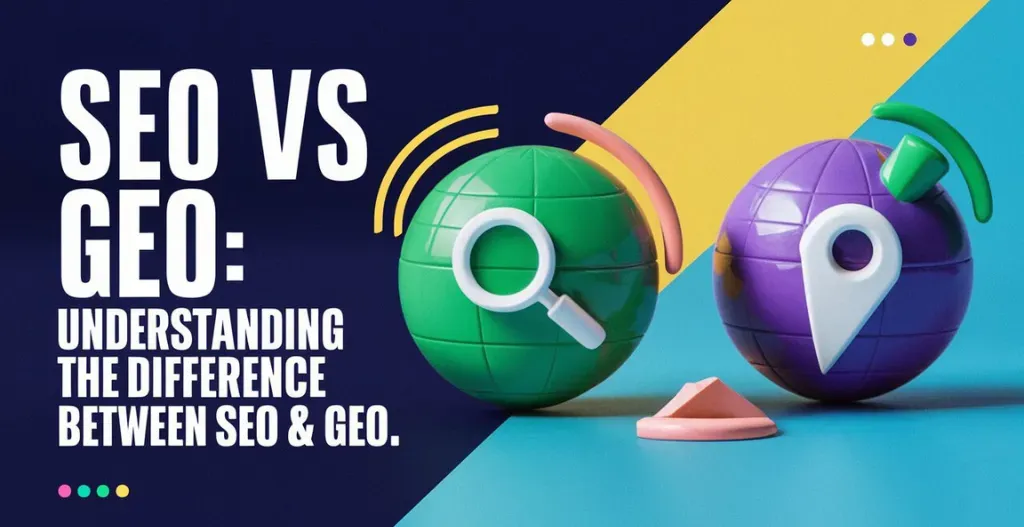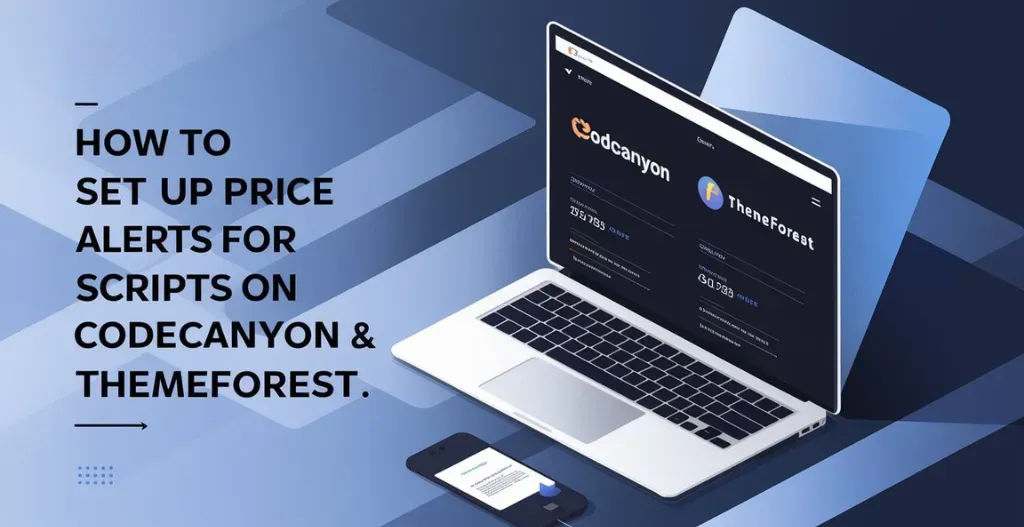In world of digital marketing, it’s important for businesses and individuals to know the difference between Search Engine Optimization (SEO) and Geo-Optimization (GEO). Both are designed to help you get more traffic and improve your online visibility, but they focus on different things.
SEO is all about improving your content and website so that it ranks higher in search engine results, no matter where the user is located. On the other hand, GEO is focused on local search optimization, helping you attract customers in specific areas. This involves using local keywords, managing Google My Business listings, and creating content that resonates with local audiences.
As businesses realize the importance of reaching the right audience, understanding the difference between SEO & GEO is essential. This guide by Owrbit will explain the key differences between these strategies, highlight their unique benefits, and offer practical tips to help you use both effectively in your digital marketing. Whether you’re a small local business or a global brand, learning how to balance SEO and GEO can open up new opportunities for growth and customer engagement.

What is SEO & GEO?
SEO (Search Engine Optimization) is a strategy used to improve a website’s visibility on search engines like Google. By optimizing the content, structure, and technical aspects of a website, businesses can rank higher in search results, making it easier for people to find them online. SEO focuses on things like using the right keywords, creating high-quality content, and ensuring the website is user-friendly. The goal is to attract more visitors to the site, regardless of where they are located.
GEO (Geo-Optimization) is a strategy aimed at improving visibility in local search results. It focuses on attracting customers in specific geographical areas. This involves using local keywords, managing business listings on platforms like Google My Business, and creating content that appeals to local audiences. GEO is particularly important for businesses that rely on local customers, such as restaurants, stores, or service providers. The goal is to connect with people who are searching for services or products in a specific location.

Key Differences Between SEO & GEO :
- Focus:
- SEO: Aims to improve your website’s visibility in search engine results for anyone, regardless of their location.
- GEO: Focuses on improving visibility specifically for people in certain geographical areas or locations.
- Keywords:
- SEO: Uses general keywords that are relevant to your business and industry, targeting a broad audience.
- GEO: Uses location-specific keywords, like city names or local terms, to target people searching in a specific area.
- Content:
- SEO: Optimizes content to appeal to a wide audience, often on a national or global scale.
- GEO: Creates and optimizes content that speaks directly to the local community or region.
- Listings:
- SEO: May involve optimizing your website and content but doesn’t necessarily include managing local business listings.
- GEO: Includes managing local listings, like Google My Business, to improve local search visibility.
- Target Audience:
- SEO: Targets anyone who might be interested in your products or services, regardless of where they are.
- GEO: Targets people who are near your business or in a specific location, aiming to drive local traffic.
- Results:
- SEO: Can help you attract a wide audience and boost your overall online presence.
- GEO: Helps you attract local customers, driving foot traffic to physical locations or increasing visibility within a specific region.

Importance of SEO in Digital Marketing :
SEO, or Search Engine Optimization, is really important in digital marketing because it helps people find your website when they search online. By optimizing your website and content, you can rank higher on search engine results pages (like Google), which means more people will see and visit your site.
In simple terms, SEO makes your website more visible to potential customers. The better your SEO, the more likely it is that your website will appear at the top of search results, leading to more traffic, more leads, and ultimately, more sales. It’s a key part of any digital marketing strategy because it helps attract the right audience to your business without paying for ads.

Importance of GEO for Local Businesses :
Geo-Optimization (GEO) is especially important for local businesses because it helps them connect with customers in their specific area. When people search for products or services nearby, GEO ensures that your business shows up in their search results. This is done by using local keywords, managing your Google My Business profile, and creating content that speaks to local needs.
For a local business, GEO is crucial because it drives more foot traffic and online attention from people who are close by and more likely to become customers. It also helps build a stronger presence in your community, making it easier for locals to find and choose your business over others.

How SEO Strategies Differ from GEO Strategies?
SEO strategies and GEO strategies are both about getting your business noticed online, but they work in different ways.
SEO Strategies :
- Broad Reach : SEO focuses on making your website show up higher in search results for people everywhere, not just in one place.
- Content and Keywords : You optimize your website content, use relevant keywords, and make sure your site is technically strong so that search engines like Google rank it higher.
- General Visibility : The goal is to attract a wide audience, regardless of where they are located.
GEO Strategies :
- Local Focus : GEO is all about reaching people in specific areas. If you have a local business, GEO strategies help you show up in searches from people nearby.
- Local Keywords and Listings : You use local keywords (like “coffee shop in New York”), manage Google My Business listings, and create content that appeals to local customers.
- Targeted Visibility : The goal is to attract people who are physically close to your business, making it easier for them to find and visit you.
In short, SEO is about reaching a broad audience, while GEO is about connecting with people in a specific location.
How to Combine SEO and GEO for Maximum Impact?
Combining SEO and GEO strategies can give your business the best of both worlds—broad visibility and local relevance. Here’s how to do it:
- Use General and Local Keywords Together :
- SEO: Identify broad keywords that relate to your industry and use them throughout your website.
- GEO: Add local keywords to target specific areas (e.g., “best bakery” + “in Brooklyn”). This way, you can rank well both globally and locally.
- Optimize Your Google My Business (GMB) Listing :
- SEO: Ensure your GMB profile is complete and updated, which helps improve your overall search engine ranking.
- GEO: Use local details in your GMB listing, like your address, phone number, and business hours, to attract nearby customers.
- Create High-Quality, Localized Content :
- SEO: Produce general content like blog posts, articles, and videos that cater to a wide audience.
- GEO: Develop content that’s tailored to your local audience, such as local news, events, and community involvement. Mention local landmarks or areas to increase local relevance.
- Leverage Local Backlinks :
- SEO: Focus on getting backlinks from reputable sites to boost your domain authority.
- GEO: Seek out backlinks from local websites, like local news outlets or blogs. This not only strengthens your local presence but also boosts your SEO.
- Optimize for Mobile and Local Searches :
- SEO: Make sure your website is mobile-friendly, as mobile usability is a key ranking factor.
- GEO: Optimize your site for “near me” searches, which are common on mobile devices. Use phrases like “nearby” or “close to” in your content.
- Track and Adjust Your Strategies :
- SEO: Monitor your site’s overall performance using tools like Google Analytics to see which pages are performing well.
- GEO: Keep an eye on local search trends and adjust your content or keywords accordingly to stay relevant in your target area.
Conclusion: Choosing Between SEO and GEO for Your Business
Deciding between SEO and GEO for your business depends on your goals and audience. If you want to reach a broad audience and improve your overall online presence, SEO is the way to go. It helps your website rank higher in search results, attracting visitors from all over.
On the other hand, if your business relies on local customers, GEO is essential. GEO strategies help you connect with people in your area, making it easier for them to find and visit your business.
For most businesses, a combination of both SEO and GEO is the best approach. This way, you can attract a wide audience while also focusing on those who are nearby and more likely to become customers. By balancing these strategies, you can maximize your online visibility and drive more traffic, both globally and locally.
Checkout Migrate Your WordPress Website to New Domain Without Affecting SEO
Discover more from Owrbit
Subscribe to get the latest posts sent to your email.











